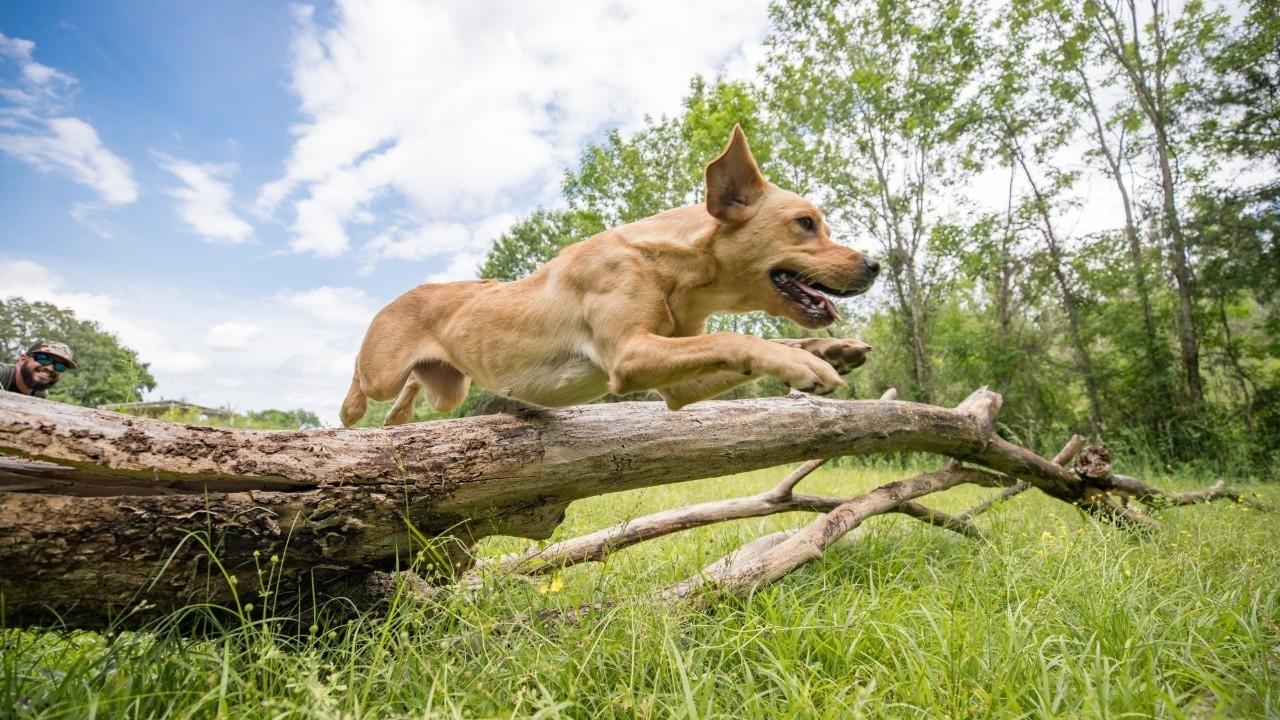How to Avoid Common Mistakes and Make the Most of Your Retriever’s Training

As a retriever owner, you might worry about one major concern: "What if I accidentally mess up my retriever’s training?" If that thought has crossed your mind, you’re not alone. Owning a great hunting dog and family companion requires careful attention, especially when it comes to playtime. Many people wonder what’s okay and what’s not, leading to fear and hesitation.
This fear of making mistakes can leave you feeling helpless when your pup starts acting out. You know you should do something, but the fear of creating bad habits might hold you back.
Sound familiar?
It can feel like a frustrating situation that you hope will just resolve itself. But here's the good news—it's not a helpless situation.
Turning Challenges into Opportunities
When your pup begins to act out, it’s an opportunity to shape and mold it into the gundog and family companion you want. The key is knowing what to do. The right approach can benefit you for years to come, while the wrong one could create future headaches.

What You Can Do to Make a Difference
First, understand that when your pup acts out, it’s not doing so out of spite. Most likely, it’s full of energy and just wants to play. This energy often manifests as chewing things, picking up objects, and running off with them—sometimes even trying to eat them.
Here’s where the opportunity lies. That boundless energy can be harnessed to build trust, confidence, and a strong working relationship from an early age.
Here’s how:
- Start Teaching Your Dog How to Learn Early
- Work on Early Retrieving
- Focus on Early Hunt Development
- Turn Chaos into Productive Training
Each of these strategies will keep your pup engaged, and out of trouble, and set it up for long-term success.
Teaching Your Dog How to Learn Early
Teaching your dog how to learn might sound odd, but it’s a cornerstone of successful training. If you want to help your dog reach its full potential, this is where you should start. While dogs do have natural learning abilities, actively teaching your pup how to learn can unlock its full potential.
Leaving it to chance means missing out on a significant opportunity to put your dog miles ahead in training. We have an entire post dedicated to this topic, but for now, let’s focus on other key aspects of early training.
Work on Early Retrieving
Retrieving is one of the main reasons people get a retriever, and it’s something you’re probably eager to start. Early retrieving is an excellent way to build trust and strengthen the bond between you and your pup. The key is to do just enough to excite your pup and leave it wanting more.
A few retrieves every other day should suffice. Not all pups will take to retrieving right away, so if yours doesn’t, don’t worry. Revisit it periodically, and eventually, the spark will ignite.
Focus on Early Hunt Development
Early hunt preparation is one of my favorite ways to engage with a pup and awaken its hunting instincts. If your pup gets rambunctious, this activity can channel its energy productively.
Here’s how it works:
- Take a handful of treats and place them in low cover, like grass.
- Wipe your hand along the ground in a circular pattern to transfer the scent.
- Encourage your pup to sniff the scent area. As its tail starts wagging, either blow the hunt whistle or say, "hunt 'em up!"
- Click to mark the hunting behavior when your pup is about to find a treat, then reward it.
This activity not only keeps your pup out of trouble but also helps develop its hunting instincts early on.
Turn Chaos into Productive Training
Pups can be chaotic and love picking up sticks or other objects, often hoping you’ll chase them to play keep away. Instead of falling into that trap, turn it into a training opportunity.
When your pup picks up something it shouldn’t, avoid lunging to take it away. Instead, use this moment to reinforce bringing the object back to you. If your pup doesn’t bring it back, give it a reason to. Reward it with a treat for delivering the object to hand, and consider using a clicker to "mark" the behavior.
Doing this consistently will increase the likelihood of your pup bringing things back to you, and turning them into a game. Soon, you’ll notice your pup actively seeking things to bring back to you.
Better keep those treats handy!
By applying these strategies, you can make playtime with your duck dog productive and fun, all while setting the stage for future success in the hunting field.
BuildFromHere,
Joshua Parvin
P.S. Training a retriever on your own can be challenging, especially if you’re unsure where to start or what to do next. Fortunately, it doesn’t have to be. Our Complete Retriever Course offers step-by-step guidance, covering every detail along the way. Train with confidence and develop a dog anyone would be proud to have in the blind.
Want more details? Sign up for the Complete Retriever Preview today and see what I’m talking about.




